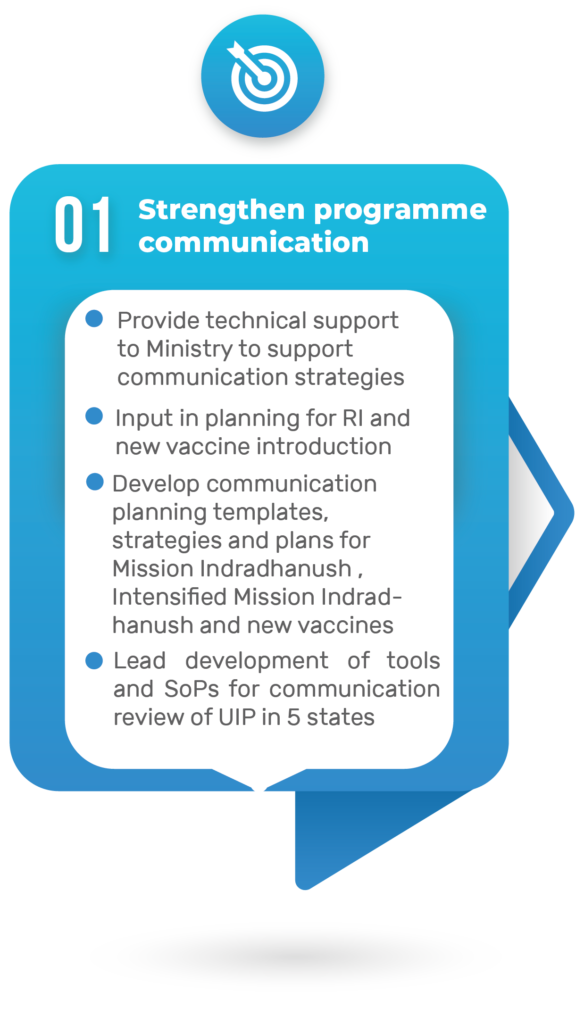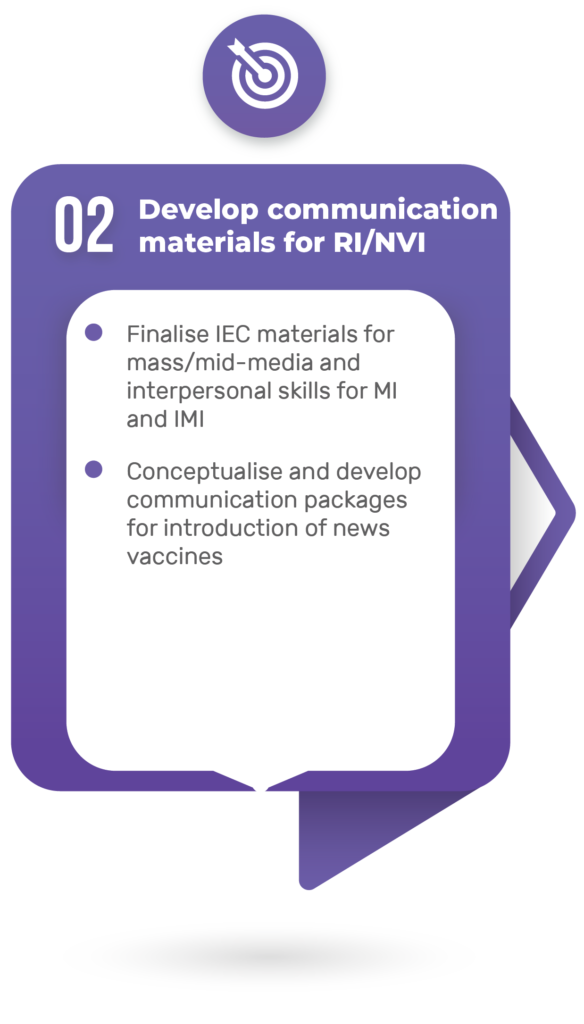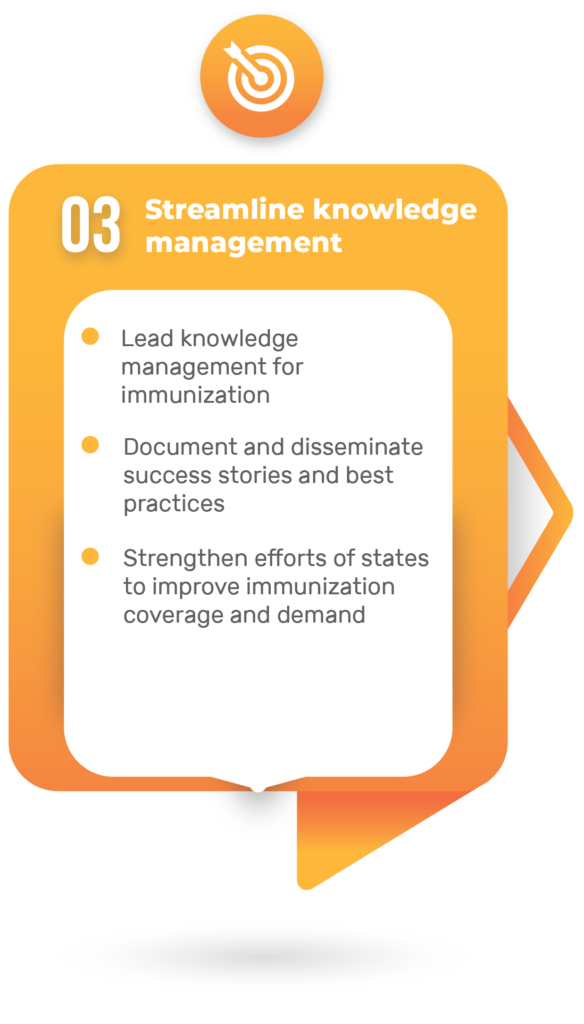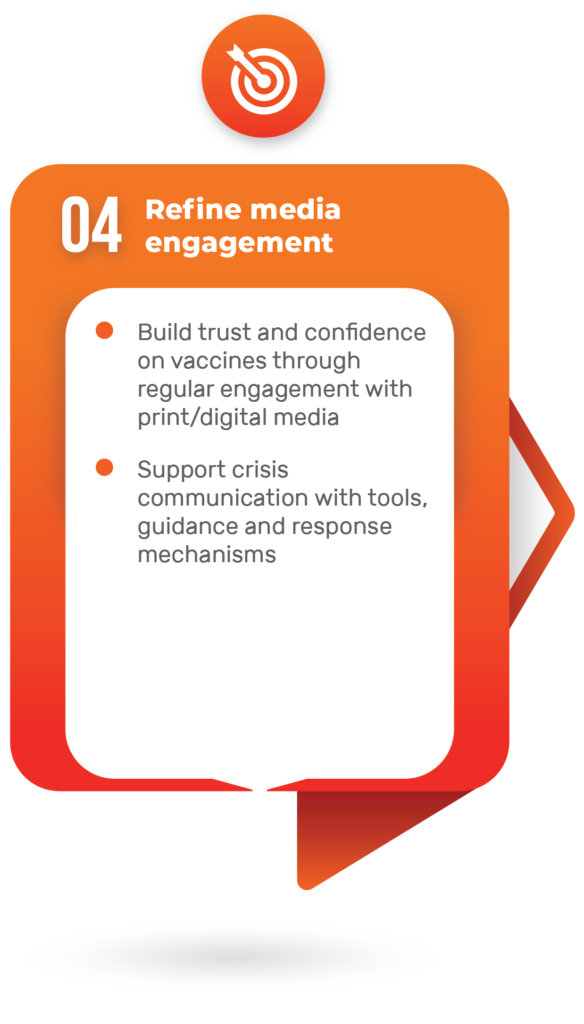Strategic Communication
As a cross-cutting department within ITSU, strategic communication and media activities have an important role in working closely with Government of India to develop communication strategies, materials, media plans and advisories and with internal teams within JSI.
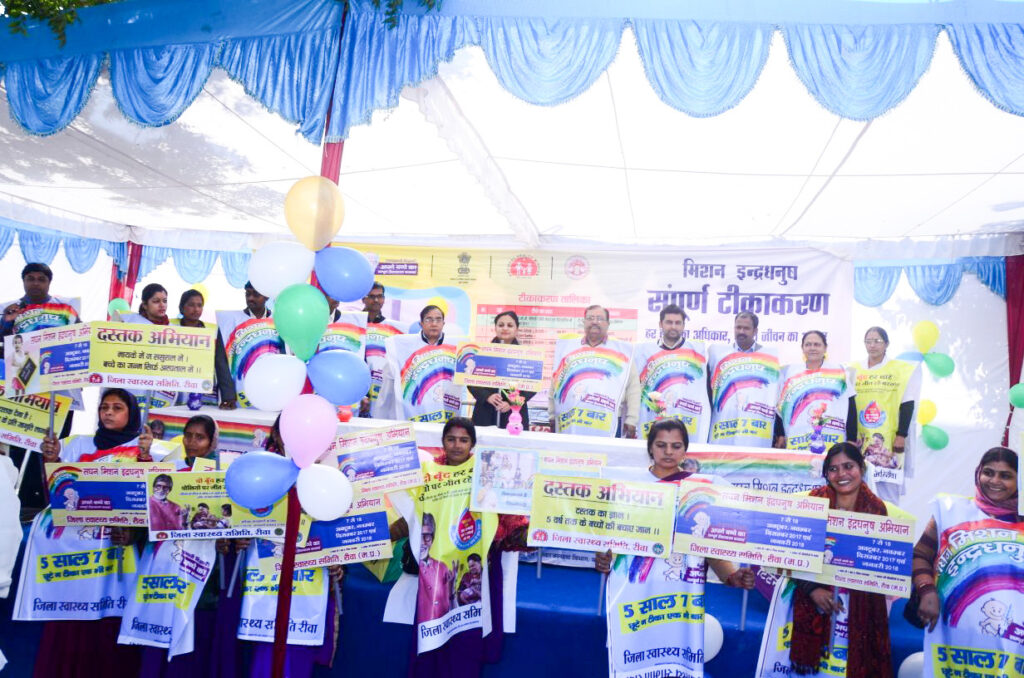
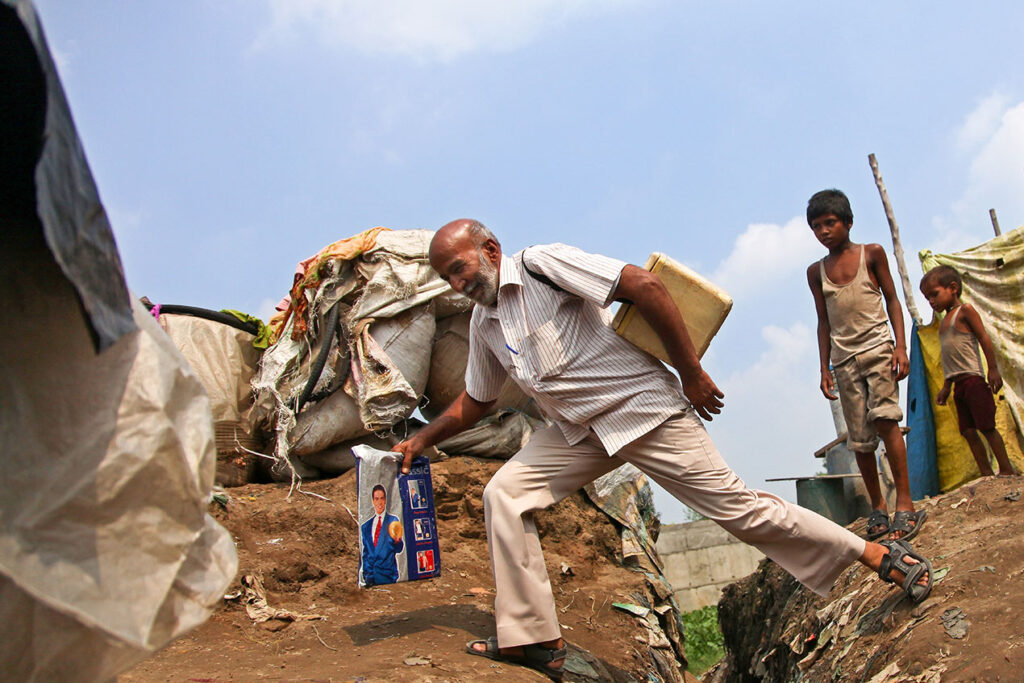
Importance of communication in immunization
Globally there is evidence to suggest immunization programs that have performed well have been attributed largely to their effective communication and dissemination. Without well-planned, adequately funded strategic communication, immunization programs fall short of meeting and sustaining coverage goals. Communication is particularly needed to achieve vaccination coverage in hard-to-reach populations and to build trust in vaccines among those who question them.
Successful vaccination campaigns require proactive communication strategies to inform the population and address vaccine concerns and hesitancy. Ensuring vaccines reach their intended beneficiaries requires planned outreach and targeted public messaging. Multiple factors influencing vaccine decisions, trust in the importance, safety and effectiveness of vaccines, along with compatibility of vaccination with religious beliefs are essential ingredients to any vaccine communication campaign/advocacy effort.
Effective outreach and communication ensures governments are aware of the various vaccine options and understand their role and thereby take ownership. Governments and large-scale programmes are seeing merit in revitalizing investments in communication for immunization. This encompasses communication in its broadest sense to include:
- Advocacy and targeting messaging
- Impactful social and community mobilization
- Strategic information, education, and communication (IEC) activities
- Responsible media outreach and responding to media queries
- Curtailing disinformation and misinformation
- Promoting initiation of new immunization behaviors and actions
Stakeholders need to advocate for immunization programs to persuade governments, donors and other actors to support vaccine programs vis-á-vis their health programs and priorities. Communication activities are even more likely to affect care-seeking behaviors when health systems offer a supportive environment and structural barriers are minimal.
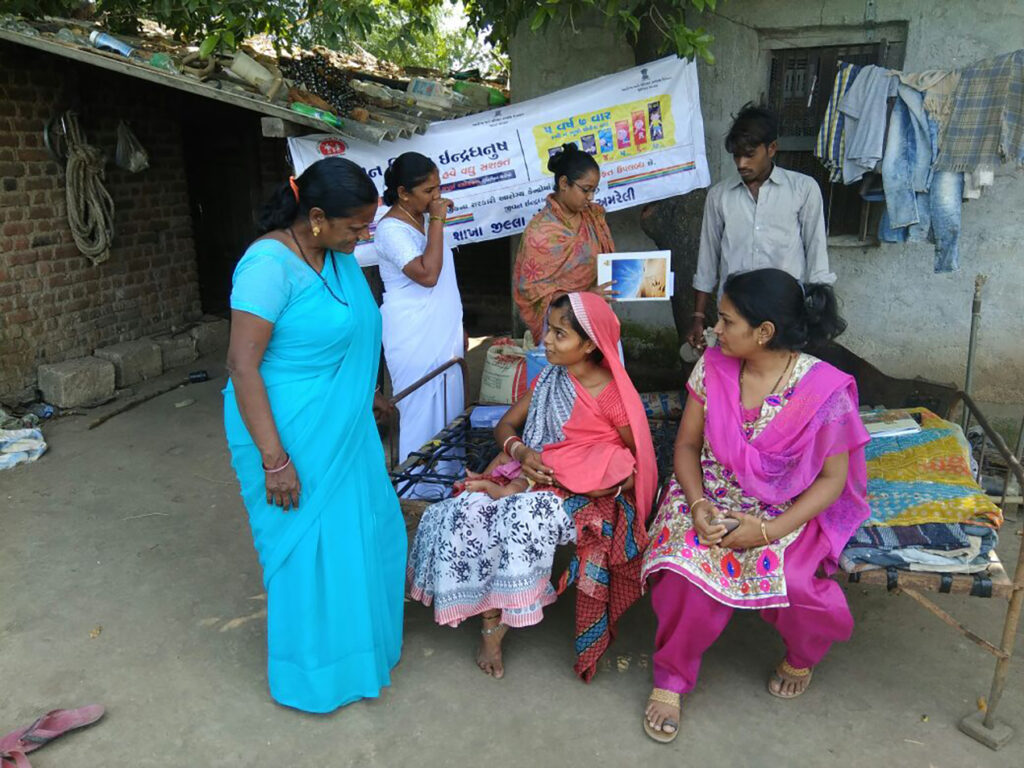
ITSU’s role in building a communication platform
Communication strategies, media involvement and strategic engagement of stakeholders for new vaccine introduction have all played a positive role for India. ITSU provides support to the Ministry of Health and Family Welfare (MoHFW) in improving the demand for immunization and raising the visibility of Routine Immunization (RI) through the development of communication strategies and plans for RI and new vaccine introduction (NVI).
In collaboration with communication partners, the Strategic Communication team uses behavioural insights related to different target groups to develop comprehensive communication material for mass media, mid-media and interpersonal communication (IPC) for improved visibility of the program. The unit also provides support in amplifying ground-level efforts on immunization through print, TV and social media, build capacity of government officials and frontline workers on social mobilization, advocacy and IPC to generate evidence on socio-behavioral patterns to support program implementation through operational research.
While developing immunization communication strategies, communication challenges that affect the success of immunization services are identified and evidence generated. Busting of myths and misconceptions is done through a plethora of relevant communication materials developed in close coordination with different teams within JSI, partners and MoHFW keeping in mind equitable coverage across the country especially in ways that are gender equal and which factor in risks faced by marginalized communities and those living in far-flung areas.
Media monitoring and analysis is an ongoing process and so is the support provided to the Ministry and to internal teams in preparing for Parliamentary questions and other queries of the public under the Right to Information Act (RTI).
Strategic communication has proved to be particularly efficacious in dealing with the infodemic wave seen during the COVID-19 pandemic when misinformation, myths and misconceptions threatened to derail the immunization drives.
Snapshot of ITSU’s recently developed communication products
- Developed communication strategies, communication planning templates and IEC materials for Mission Indradhanush, Intensified Mission Indradhanush, Rotavirus vaccine, Pneumococcal conjugate vaccine (PCV), Measles-Rubella (MR) campaign and adult diphtheria (Td) vaccine
- Immunization newsletter for MoHFW highlighting progress and achievements of the Immunization programme
- Enhanced media visibility at national and state level via varied coverage on RI, MI and the NVI
- Finalized a Social Media Engagement Plan and activities to be disseminated through partners
- Successfully driving a social media campaign for immunization @vaccinate4life and using social media to amplify key messages and relevant media coverage
- Daily monitoring and tracking of print and online media on immunization and news reports shared with MoHFW.
- Developed SoPs and tools for AEFI media communication, guidelines on crisis communication, responding to crisis situations in RI and around new vaccine introduction and scale up; media monitoring and tracking of crisis arising from AEFI
- Knowledge management and documenting innovative/best practices/success stories on immunization


